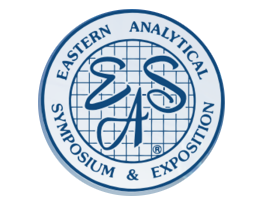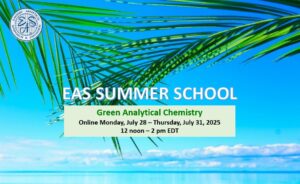One-Day Course
Wednesday, Nov. 20; 8:30am – 5:00pm
Dr. Imad Haidar Ahmad, Merck & Co., Rahway, NJ
COURSE DESCRIPTION
This course teaches the basics of HPLC troubleshooting by reviewing the most common problems encountered in HPLC analysis. The course is divided into five sections: artifact peaks, retention time variability, peak broadening, baseline noise, and peak area variability. A set of clues are provided for each section to help diagnosing, confirm, and solving of the chromatographic problem. List of recommendations/best approaches are given at the end of each section. Over 60 study cases from literature are presented and discussed in this course in an interactive way. The attendees will be involved in solving most of the riddles by pondering upon the root cause and the solution of the presented problems. At the end of the course, a poster summarizing all the problems presented in this course along with clues, solutions, and examples from the literature will be provided.
WHO SHOULD ATTEND
This course is designed for analytical chemists who want to understand how to systematically diagnose and solve HPLC troubleshooting problems. The course presents a simplified and comprehensive guide for identifying, understanding, and solving HPLC troubleshooting. This course suits not only analysts with a little experience in HPLC but also experts with long experience in the field. Attendees are encouraged to look at the troubleshooting article the author wrote and the poster he presented (links below) to have an idea about the content of the course. They are also welcomed to bring examples of HPLC troubleshooting problems they are encountering to get feedback from the instructor.
References:
Article: Imad A. Haidar Ahmad, Necessary analytical skills and knowledge for identifying, understanding, and performing HPLC troubleshooting, Chromatographia 80 (5), 705-730. https://link.springer.com/article/10.1007/s10337-016-3225-7
TOPICS
1. Troubleshooting
a. Where to start?
b. Look for clues
c. List of recommendations
d. Useful resources
e. Fun group activity – guess the correct answer by voting on your phone
2. Artifact Peak
a. Look for clues – diagnose problem
b. Source of problem
c. Remedy
d. Examples of artifact peak
3. Peak Broadening/Distortion
a. Diagnose problem – decision tree
b. Source of problem
c. Remedy
d. Examples of peak distortion problem
4. Group activity
5. Peak Area Variability
a. Look for clues – diagnose problem
b. Remedy
c. Examples of peak area variability
6. Retention Time Variability
a. Look for clues – diagnose problem
b. Source of problem
c. Remedy
d. Examples of retention time variability
e. Recommendations on how to use/care of HPLC column
7. Baseline Noise
a. List of clues
b. Source of problem
c. Remedy
d. Examples of artifact peak
8. Overall Summary – Explanation of Poster
9. Group Activity – Guess the Correct Answer by Voting on your Phone
ABOUT THE INSTRUCTOR
Dr. Imad Haidar Ahmad is a senior scientist from the process R&D department at Merck & Co., Inc. Prior to joining Merck, he was a Principal Scientist at Novartis Pharmaceuticals. He obtained his Ph.D. in analytical chemistry from Florida State University under Professor André Striegel’s supervision and his postdoctoral training at University of Minnesota with Professor Peter Carr. He has published on several topics including polymer analysis using multi-detection size-exclusion chromatography, two dimensional liquid chromatography, pharmaceutical analysis, method development, HPLC troubleshooting, and instrument evaluation. The last two topics inspired him to put together an HPLC-troubleshooting course which he taught numerous times internally during his time in Novartis, currently at Merck, and at the Delaware Valley Chromatography Forum.

